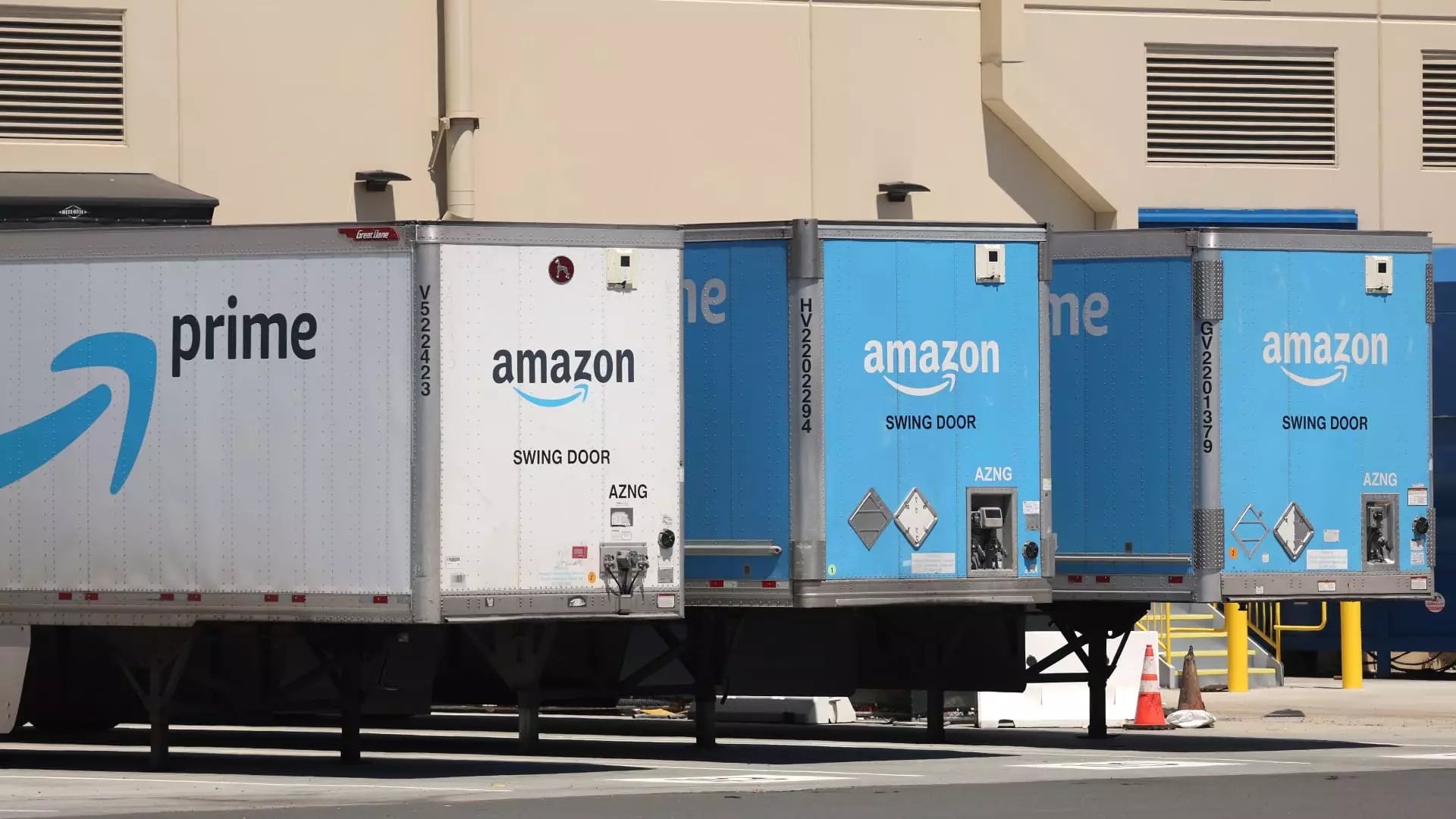In recent years, the national spotlight has been glaring on the issue of cargo theft, particularly as it affects corporate giants like Amazon. The revelation that a sophisticated Armenian organized crime ring managed to siphon off a staggering $83 million worth of merchandise over the span of a couple of years raises alarms not just about the vulnerability of one company, but about the overarching security practices of an industry at the nexus of technological and logistical innovation. This isn’t just a story about stolen televisions or kitchen appliances—it’s a narrative that exposes the vulnerabilities of a system increasingly reliant on third-party logistics and dubious actors.
The Department of Justice’s probe into this crime ring reveals how deep and troubling the issue of cargo crime has become. The alleged criminals successfully disguised themselves as legitimate truck drivers, utilizing the very systems that were designed to streamline operations for companies like Amazon. The fact that they managed to exploit tools like Amazon Relay, which is intended to match truckers with loads, speaks volumes about the need for more rigorous vetting processes. This is not merely an operational hiccup but an indictment of the very framework of e-commerce today, where the risks of a digital marketplace intersect perilously with real-world logistics.
The Impact on Retail and E-commerce
Experts estimate that cargo theft is costing retailers close to $1 billion annually, a statistic that should send shivers down the spine of any business relying on supply chain integrity. The rise in cargo theft not only jeopardizes the assets of companies but also risks undermining consumer trust in online shopping platforms. Each fumbled delivery and each lost pallet of goods doesn’t merely represent a financial loss; it evokes questions about accountability. We live in an age where Amazon’s expansive reach and its commitment to efficiency must be matched by a bulletproof security apparatus.
However, it’s important to approach the situation with a critical eye. In an industry where Amazon has suspended numerous third-party sellers due to alleged complicity in selling stolen goods, one has to wonder if the boat is being rocked merely to maintain the illusion of control. Shouldn’t the emphasis be on holding those truly responsible accountable instead of sweeping countless small businesses into the fray? The consequence of this crackdown risks putting many innocent parties out of business, leaders in the e-commerce space need to ensure that in their hurried response to crime, they are not neglecting the justice owed to those who abide by the rules.
A Task for the Future: Solutions Beyond Punishment
The challenge we face now isn’t merely punitive; instead, it necessitates a fundamental reevaluation of how logistics and supply chain operations are managed. How can we balance fluid operations with rigorous security? The digital age offers plentiful solutions, such as utilizing blockchain technology for transport verification or implementing advanced AI algorithms designed to detect anomalies in shipping patterns. Investment in such technologies could drastically reduce vulnerabilities and improve transparency across the board.
Moreover, as this incident illustrates, collaboration should be at the forefront. Companies must prioritize transparent communication between stakeholders—from carriers to manufacturers to retailers—to develop a more cohesive strategy against cargo theft. Relying solely on reactionary measures court’s danger; we must be proactive, seeking innovative solutions that address the root causes rather than merely treating symptoms.
In a legal climate where numerous defenders face charges ranging from identity fraud to attempted murder, we may be led down a path of punitive measures that fail to engage with the systemic issues underlying such criminal entities. Little contemplation has been given to why these individuals are driven to theft in the first place. While the crime is unequivocally wrong, the focus should shift to encompass a broader understanding of socio-economic conditions that give rise to such organized criminality.
The incident touches on a crucial reality—we must demand more from our tech giants. As purveyors of both products and systems, they carry a responsibility not only to their shareholders but to everyone engaging with their platform. To ignore this responsibility amid rising crime rates is to open the door to further vulnerabilities and malpractices that could devastate industries reliant on trust and safety.

